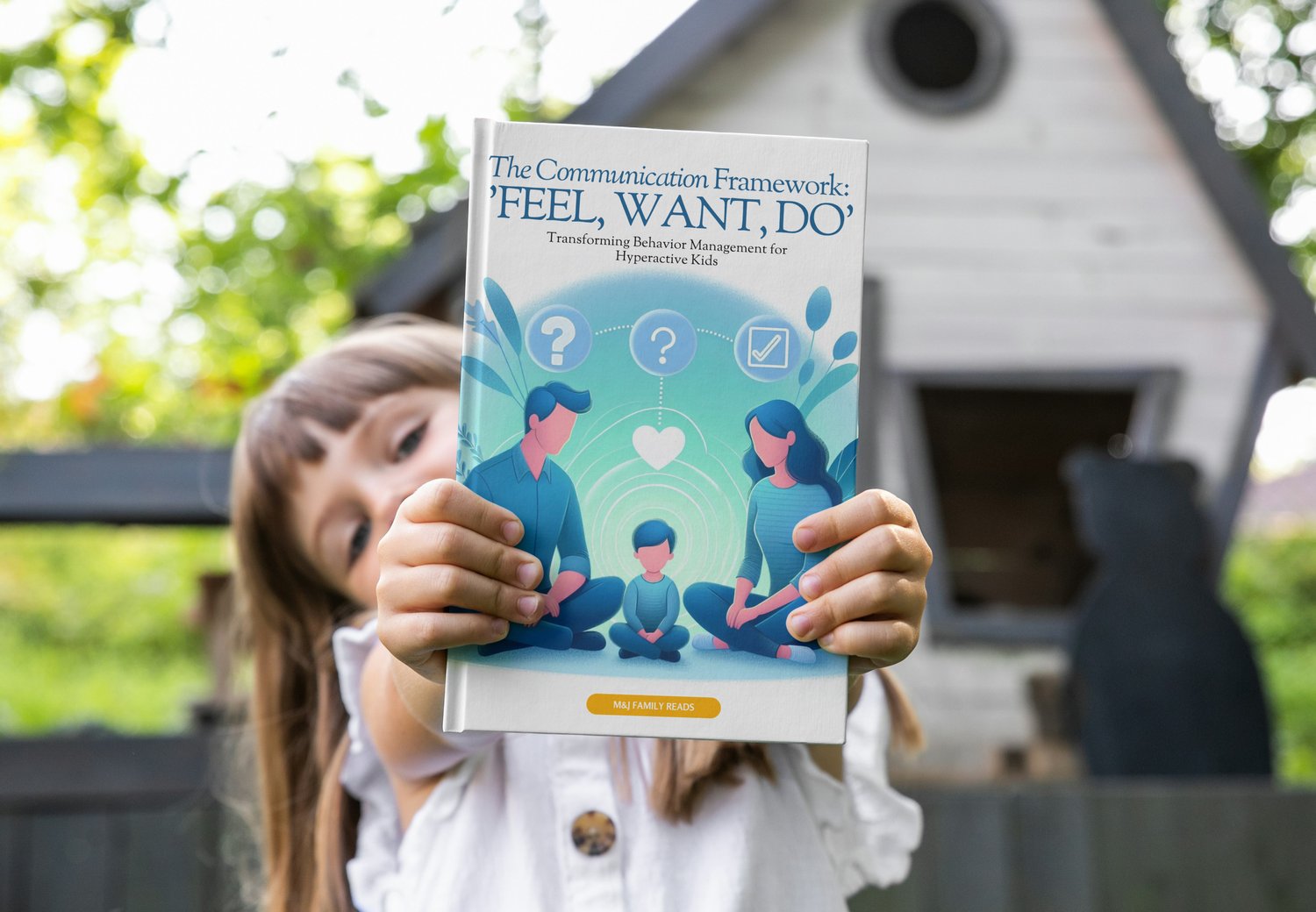Parenting a hyperactive child can feel like an emotional rollercoaster. From sudden outbursts to the constant need for stimulation, hyperactive children often present unique challenges that can leave parents feeling overwhelmed and unsure of how to handle their behavior. But don’t worry—you’re not alone, and more importantly, there is hope.
If you're struggling to manage your child's hyperactivity, it's time to discover proven parenting strategies that focus on emotional intelligence and building long-lasting, positive connections. These strategies not only help in managing impulsive behaviors but also lay the foundation for healthier, more effective communication within your family. By understanding your child's emotional needs and guiding them to develop essential coping skills, you can create a peaceful, nurturing environment that fosters growth and connection.
The Importance of Emotional Regulation in Hyperactive Children
One of the biggest struggles for parents of hyperactive children is managing their intense emotions. Hyperactive kids often have difficulty controlling their impulses, especially in situations where emotions are running high. This can lead to frustration, disruptive behavior, and sometimes strained relationships with family members.
But what if there was a way to address the root cause of these behaviors rather than just focusing on stopping the actions themselves?
The key to successful parenting strategies for hyperactive children lies in emotional regulation. Emotional regulation is the ability to recognize and manage one’s emotions in a healthy way. By teaching your child emotional intelligence, you're giving them the tools to better understand their feelings, express their needs, and make more thoughtful decisions in the future.
Proven Parenting Strategies for Hyperactive Children: Step-by-Step Guide
The good news is that with the right tools, you can manage your child’s behavior more effectively. Here are some proven parenting strategies to help your hyperactive child:
1. Focus on Emotional Awareness ("Feel")
The first step in any effective parenting strategy is helping your child identify and express their emotions. Often, hyperactive children act out because they don’t know how to process or communicate what they’re feeling. By taking a moment to pause, breathe, and ask your child how they feel, you help them recognize their emotions.
For example, when your child is acting out during a moment of frustration or excitement, ask them, “How are you feeling right now? Are you frustrated? Are you excited?”
2. Recognize Unmet Needs ("Want")
Hyperactive children often act out when they have unmet needs—whether it’s a need for attention, rest, or a physical activity break. Once you've helped your child identify their emotions, the next step is to uncover what they need.
Ask your child, “What do you need right now? Are you hungry? Do you need a break? Can I help you with something?” This gives your child the tools to articulate their needs and prevents frustration from escalating into disruptive behavior.
3. Guide Towards Healthy Actions ("Do")
The final step is empowering your child to choose an appropriate action. After recognizing their emotions and needs, guide them toward an action that helps them regain control over their feelings and behavior. This could be something as simple as taking a few deep breaths, sitting in a calm space, or choosing a quiet activity.
For example, if your child is feeling overwhelmed, suggest they go to a quiet room and take a break. If they’re excited and bouncing off the walls, guide them to a physical activity like jumping on a trampoline or doing a quick dance routine to release excess energy.
Why These Strategies Work: Building Trust and Cooperation
When you focus on emotional intelligence instead of punishing behavior, you foster a more trusting relationship with your child. Rather than feeling like they’re always in trouble, your child learns that their feelings matter and that there are healthy ways to express them.
This shift creates a more cooperative home environment, where your child feels safe expressing themselves, knowing they’ll be understood. It also helps reduce the frustration and anxiety that often lead to impulsive behaviors in the first place.
Moreover, by using these strategies consistently, you are teaching your child self-regulation skills that will benefit them long after they’ve outgrown their hyperactivity.
Start Using These Parenting Strategies Today
If you're ready to transform the way you manage your child's behavior, it’s time to start using these emotional intelligence-based strategies today. With a little patience, consistency, and understanding, you can help your child develop the skills they need to manage their emotions and behavior in a healthy, positive way.
At M&J Family Reads, we’re dedicated to helping parents like you succeed. Our resources and strategies are designed to support you on this journey, so you can build a stronger, more connected relationship with your child.
Creating a Peaceful Home with Emotional Intelligence
Parenting a hyperactive child doesn’t have to feel like an impossible task. By focusing on emotional regulation and using parenting strategies that promote understanding and empathy, you can transform the way you interact with your child. These strategies not only help manage hyperactivity but also teach valuable life skills like emotional awareness, self-regulation, and healthy communication.
Take the first step today—use these strategies to create a peaceful, emotionally supportive home where both you and your child can thrive.


